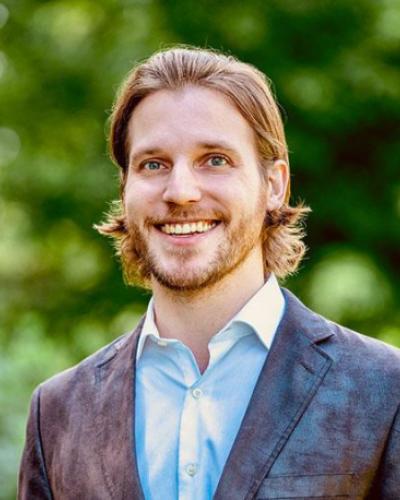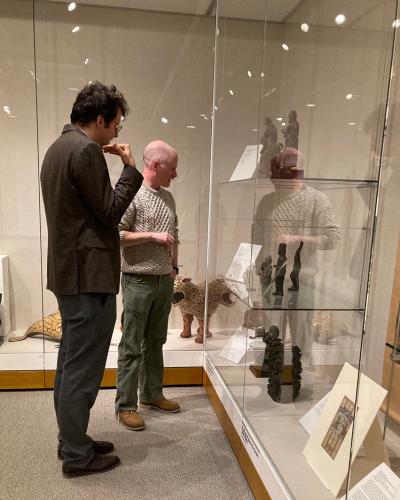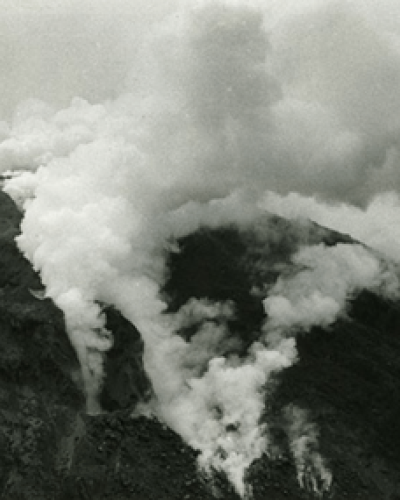SHUM 6308 Expanded Practice Seminar - Atmospheric Pressures: Climate Imaginaries and Migration in the Caribbean
(also ARCH6308, ARCH 6408, COML 6369)
Spring. 4 credits.
Limited to successful applicants.
Tao Dufour and Natalie Melas
R: 2:30 - 4:25 p.m.
CALL FOR APPLICATIONS
The Fall 2019 Expanded Practice Seminar, “Atmospheric Pressures: Climate Imaginaries and Migration in the Caribbean,” is an innovative traveling seminar for graduate students in the humanities and design disciplines. Expanded Practice Seminars are offered under the auspices of Cornell University’s Andrew W. Mellon Foundation Collaborative Studies in Architecture, Urbanism, and the Humanities grant and are organized by the College of Architecture, Art, and Planning and the .
Selected students receive a $1,500 stipend and a funded, week-long travel program to Trinidad in Fall 2019.
Due to the interdisciplinary nature of the Expanded Practice Seminar, a wide range of skills and backgrounds are welcome. Advanced undergraduate students may apply, but preference will be given to students in their first three years of graduate study. Applications require a recent CV and a 500 – 700-word statement of interest describing your background interest in the seminar topic. No letters of recommendation are required. Questions should be directed to Rebecca Elliott (re255@cornell.edu).
Applications must be submitted via http://urbanismseminars.cornell.edu/apply by June 15, 2019.
COURSE DESCRIPTION
This seminar explores the significance of climate imaginaries for forms of urban and hinterland migration and mobility in the Caribbean as these relate to colonial and postcolonial histories, and in contemporary contexts defined by the urgencies of environmental hazards. Taking “climate” in a wider sense, the seminar situates climate imaginaries – as mediated through literature, film, landscapes, and spatial forms – as intersubjective horizons within which understandings of climate change and the experience of its effects are enmeshed.
For postcolonial Caribbean thinkers the horizon of the natural world is at the same time constitutive of a form of historicity. Édouard Glissant proposes a non-foundational postcolonial Caribbean imaginary in which the archipelago is a “multi-relation” where “this sea is here within us with its load of islands finally discovered.” The seminar is particularly concerned to explore relations between the more tangible effects of climate on urban, infrastructural, and ecological landscapes in the Caribbean and intersubjective experiences of climate as mediated through literary and mytho-poetic forms: from historical accounts of climate as ‘catastrophe’ – the effects of hurricanes, volcanoes, earthquakes on insular urbanities – to climate as a more general, atmospheric horizon in the constitution of Caribbean worlds. Guyanese writer Wilson Harris frames the urban environmental question as an ontological one: “Cities have come to nestle in branches of clay or stone in valleys or mountains. […] Their hope is born of the life of imagination’s tree in which sculptor and painter and architect and carpenter and mystic sensitize and re-sensitize themselves to rhythms and pulses orchestrated through being and apparent non-being.” Thematically, the seminar draws on the work of anthropologist Anna Lowenhaupt Tsing, interpreting the industrialized-urbanized ecological territory in terms of “capitalist ruination” which, nonetheless, holds possibilities for other modes of environmentality and subject formation, as the hazards effected by climate change fundamentally disrupt and transform the very urbanity constituted through colonial and later resource extractive appropriations.
The seminar will explore the migratory effects of climate imaginaries in the Caribbean from a variety of perspectives: mytho-poetic senses of migration such as interspecific morphoses – the becoming animal, plant or ‘spirit’ of the human – and the persistence of Amerindian horizons; genocidal displacements, enslavement, indentureship, and the historicity of colonial violence and revolution; the ecological constitution of the region as migratory formation; urban-hinterland and inter-island migration as a consequence of environmental hazards and catastrophes; rural-urban migration and the expansion and planning of cities as a function of modernizing and industrializing processes; and migration as a metaphorical schema in the generative constitution and literary, artistic and spatial articulation of Caribbean world-horizons.
The seminar will be structured along thematic lines, including: philosophies of relation and postcolonial theory; the anthropology of ‘nature’; phenomenologies of the ‘natural’ world and corporeity; philosophies of ‘atmosphere’; political ecology and feminist environmental theories; landscape theory; theories of urbanization and philosophies of territory. In exploring these themes, we will consider the Caribbean’s multiple linguistic and creole contexts, including those of Trinidad & Tobago, Martinique, Guadeloupe, Haiti, Cuba and Guyana.
Course instructors: Tao DuFour, assistant professor of architecture, and Natalie Melas, associate professor of comparative literature
Above image: Werner Herzog, La Sourfière (1977), film still





